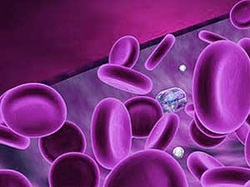 Originally published at medpagetoday.com by Charles Bankhead, Staff Writer, MedPage Today on April 05, 2013. Reviewed by Robert Jasmer, MD; Associate Clinical Professor of Medicine, University of California, San Francisco and Dorothy Caputo, MA, BSN, RN, Nurse Planner  All patients with advanced lung adenocarcinoma should undergo testing forEGFR and ALK mutations to determine their eligibility for targeted therapies, according to a jointly developed guideline from three organizations. Patients should undergo EGFR testing at diagnosis of advanced disease or at recurrence or progression if they were not tested at earlier disease stages. ALKrearrangement testing is suggested by the International Association for the Study of Lung Cancer, the College of American Pathologists, and the Association for Molecular Pathology. Patients should not be excluded from testing because of smoking status or clinical characteristics, the guideline authors said in an article published online in the Journal of Thoracic Oncology. "It was recognized by each of these three organizations that there was a gap in knowledge, a gap in communication, and variance around the world in how this testing ought to be done," first author Neil I. Lindeman, MD, a pathologist at Brigham & Women's Hospital in Boston, said in video statement. "We decided collectively ... that these three voices should come together in order to make a consensus guideline." The consensus opinion of the guideline panel is that EGFR and ALK testing should be encouraged for patients with stage I, II, or III disease at diagnosis. EGFR testing should have priority over all other genes, followed by ALK. "Any oncologist should be able to provide this testing and should do this testing to give their patients optimal care," Gregory Riely, MD, a medical oncologist at Memorial Sloan-Kettering Cancer Center in New York city, said in the video. "With a proper biomarker, I can tell patients that they have a 70% to 80% chance of responding to a treatment rather than saying that they have a 1 in 10 chance of responding to treatment," he added. Other points made in the guideline include:
The guideline addresses a variety of other issues related to testing techniques and processes, quality control, testing for secondary mutations and for other genes, and reporting results. The broad recommendations for testing and the guideline's emphasis on urgency in obtaining test results reflect practices already in place at leading cancer centers, according to Edward Kim, MD, of Carolinas HealthCare System's Levine Cancer Institute in Charlotte, N.C. "Testing should be based on type of patient (i.e. histology) and not clinical characteristics (i.e. smoking status or ethnicity)," said Kim, who was not involved in writing the guideline. "Both tests (EGFR and ALK) are recommended to be ordered at diagnosis, which is our current practice at Levine Cancer Institute. "Although 'within 2 weeks' for results is recommended, I hope that the turnaround time can be shortened in the near future. Patients with lung cancer are anxious to begin therapy, and longer delays will preclude the use of these molecular agents in the front-line setting." The guideline authors disclosed relationships with Novartis, Millennium, Arqule/Daiichi Sankyo, NanoString, Genzyme, Infinity, Sequenom, Remedica Medical Education, Abbott, Existence Genetics, CymoGen Dx, Applied Spectral Imaging, Parteq-Queen's Commercialization Office, Merck, Eli Lilly, Pfizer, OSI/Genentech/Roche, AstraZeneca, Boehringer Ingelheim, Amgen, GlaxoSmithKline, Bristol-Myers Squibb, and sanofi-aventis. Several authors disclosed royalties related to publications and fees received as expert witnesses. Primary source: Journal of Thoracic Oncology
Source reference: Lindeman NI et al. "Molecular testing guideline for selection of lung cancer patients for EGFR and ALK tyrosine kinase inhibitors: Guideline from the College of American Pathologists, International Association for the Study of Lung Cancer, and Association for Molecular Pathology" J Thorac Oncol 2013; DOI: 10.1097/JTO.0bO13ee318290868f.
0 Comments
Your comment will be posted after it is approved.
Leave a Reply. |
Details
|


 RSS Feed
RSS Feed
